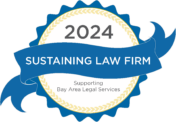
If you Google “estate planning forms” you will find options for Do-It-Yourself Wills. Some people may wonder: How hard can it be to fill in the blanks? Danger, Will Robinson! As lawyers that have read hundreds of these Do-It-Yourself Wills over the years, we have seen first-hand the real dangers of Do-it-Yourself estate planning. DIY Wills often create a nightmare for surviving family members, and fail to adequately capture the intent of the Testator – the person attempting to make the Will. There are often ambiguous phrases and provisions that simply do not work under Florida law.
Here are a few of the most common problems we see with Do It Yourself Estate Planning:
- DIY estate planning leads to mistakes in the execution of the documents. As discussed in our blog post from earlier this year, Florida has very stringent requirements for the signing of a Will. A valid will requires the signature of the person who made the will, plus the signatures of at least two witnesses. All three must sign in each other’s presence. Additionally, for the will to be considered “self-proved,” a notary must verify the identity of the person making the will and the two witnesses, and properly notarize their signatures. If a will is not “self-proved,” then it becomes much harder to admit the will probate. The Petitioner will likely have to obtain an Oath from one or both of the witnesses to the Will. Given the strict formalities required to properly execute a Will in Florida, many folks who use “Do It Yourself” Wills that they download online never actually succeed in making a valid Will. It is very easy to make mistakes in the execution of the documents.
- DIY Wills are often poorly drafted with unclear terms and ambiguous language. For example, some DIY Wills have space for survivorship provisions, which addresses the scenario if a beneficiary predeceases the person who made the will. Unfortunately, we have seen several self-drafted survivorship provisions with conflicting and confusing terms. This poor drafting inevitably leads to conflict, and sometimes litigation, among beneficiaries. Additionally, many DIY wills provide no guidance on the critical provisions of Florida law. For instance, a DIY Will might recommend the maker of the will nominate someone “trustworthy” to serve as personal representative of the estate. But it provides no guidance on the fact that only certain people will qualify under Florida law to serve as the Personal Representative of your Estate. The online forms are ambiguous, provide you with no legal guidance, and lead to many mistakes.
- DIY Wills do not govern the disposition of contract assets that have beneficiary designations. This leads to more confusion. Many assets, such as retirement accounts, brokerage accounts, and bank accounts, are governed by beneficiary designations. In almost all cases, the beneficiary designations control, not the will or trust instruments. Estate planning documents should complement beneficiary designations. This requires careful planning and review with a professional. So many people using DIY Wills do not understand that the Will does not “trump” their beneficiary designations on retirement accounts or other assets. The careful planning required – reviewing all of a person’s assets, and how they are titled – is rarely completed when someone fills out a DIY Will online. This often leads to the unfortunate result where beneficiary designations that have not been updated in years will govern the disposition of assets that the Testator thought were “fixed” with a DIY Will.
If you want your estate planning done correctly, avoid the Do It Yourself, Fill-in-The-Blank Forms. These forms create headaches for your family and loved ones in the future. They can also lead to costly litigation. We would welcome the opportunity to consult with you on your estate planning goals so that you and your loved ones can avoid these common pitfalls. Schedule an appointment today to meet with one of our expert attorneys.



